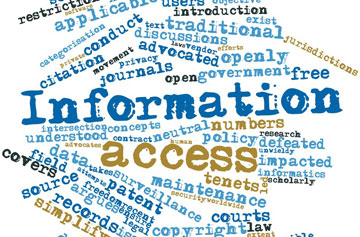 United States government office holders and custodians of public records must continually work to ensure that important land, court and historical records are complete, accessible and safe from natural and other disaster. They have found that converting paper records and analog data to computer readable digital format with the help of a data conversion service provider is the optimum solution.
United States government office holders and custodians of public records must continually work to ensure that important land, court and historical records are complete, accessible and safe from natural and other disaster. They have found that converting paper records and analog data to computer readable digital format with the help of a data conversion service provider is the optimum solution.
In 1976, the General Assembly enacted the Open Record Act, which establishes the right of accessing public records. Although most records are accessible to the public, there are numerous federal and state laws that exempt particular records from disclosure such as drafts, notes, trade secrets, social security numbers, and certain employee information among others.
Public Data Is Not Always Accessible
Data is growing at a rapid speed and 90 percent of the data today was created in the last two years alone. At present, anyone can access information by simply typing and searching on Google or Siri or Alexa. This is because almost all organizations have converted their data into digital format and uploaded on the Internet for easy accessibility. Every second, over 40,000 searches are made on Google. People constantly request information, interactions and connections all of which are provided by searching for and accessing data online. Various data is available throughout the Internet but answers to all questions may not be available online.
The Colorado legislature is debating proposed changes to the Colorado Open Record Act and the role government should play in releasing documents and data in usable digital formats. Right now, it is not easy to find and research public or government data on the World Wide Web though people think it is free, easy to find and available in a usable format.
Clean and Complete Data Is Vital
Three years ago, a company Ponderosa Advisors developed a tool called Water Sage to help people understand water use and water rights. Water Sage integrates water rights, well, and land data for nearly 2.5 million parcels; more than 160,000 water rights; and data for nearly 425,000 water wells and structures. They could build this comprehensive land parcel and water database only because they gained access to quality public data.
Public data is in many instances available in new and easy-to-use formats such as shapefiles, KML (Google Earth) or CSV (comma separated values) which makes it easier to use or incorporate into value-added software programs like Water Sage. But very often, important public data sets with real world applications are either hard to find or exist in formats that require manual processing. When data is stored in paper format, access becomes more difficult apart from the challenge of digitizing it. So public data is in many instances inaccessible, and neither free nor easy to process.
Meaningful Data Analytics with Good Data
Meaningful analytics from public sources is only as good as the data that you use for the purpose. The better the data, the better the results will be. Among other states, Colorado is foremost in publishing public data. Accessible and comprehensible data can transform the way any organization engages with and solves it most critical issues. Most government organizations are utilizing data conversion services to mine and cleanse available data, perform data analytics and thereby take steps to improve operational efficiency while also ensuring better decision making. When implementing an open records policy, challenges exist in the form of costs, sensitive information and privacy of data. Policymakers should be able to decide whether the benefits outweigh the challenges and risks.




